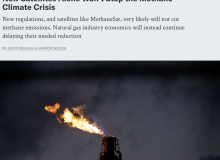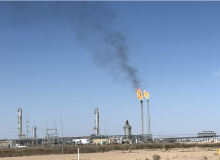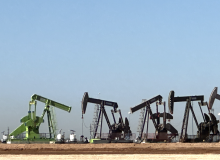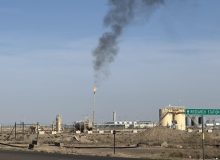For the past five years my work has focused on several major economic developments in the oil and gas industry. The conclusions of my economic analysis were often in direct contradiction to most of the reporting in the major financial publications. Despite the contrarian nature of my forecasts, my work has proven to be accurate.
Oil Export Ban
In 2014 I started reporting on the misleading and well-coordinated efforts of the oil and commodity trading industry’s efforts to lift the 40 year old U.S. crude oil export ban.
My analysis predicted that lifting the ban would lead to a rapid expansion of the U.S. fracking industry as I explained in the article, “Lifting Ban On U.S. Crude Oil Export Would Enable Massive Fracking Expansion”
At the time many of the “experts” were making predictions that the result of lifting the ban would be minimal.
Prior to the lifting of the ban I highlighted the well-coordinated efforts by oil industry-funded groups to promote their predictions that helped get the ban lifted. Many of the arguments they made to support the lifting of the ban were quickly proven wrong.
My analysis proved to be accurate. The export ban was lifted and crude oil exports skyrocketed as the fracking industry ramped up production for export. China has been a top destination for U.S. crude oil exports — something I also forecast despite assurances by the industry that this was not likely to happen.
Finances of Fracking
In 2018 I began to investigate the finances of the U.S. shale oil and gas fracking industry. Despite endless hype in the financial press about the bright and profitable future for the industry, the numbers didn’t add up.
When I began reporting on the issue and interviewing people the most common response to me saying that the fracking industry was losing money was, “You must be wrong. That doesn’t make any sense. They are producing record amounts of oil. How could they do that?”
My first article was titled, “The Secret of the Great American Fracking Bubble” and explained how they were producing record amounts of oil and gas while losing money.
Now in 2021, the secret is out. The U.S. fracking industry has lost more than $340 billion producing record amounts of oil and gas.
How could they do that? It’s all in the DeSmog series on the Finances of Fracking. The simple explanation is that the executives got very rich doing it despite not making a profit for investors.
The more complex answer is that there was likely a lot of fraud involved and the financial regulators in the U.S. ignored it.
Oil and Gas Industry Fraud
Analysis of the finances of the U.S. oil and gas shale industry reveals that the finances of the industry simply don’t add up. The industry has promised profits for the past decade while losing over $350 billion dollars and writing off hundreds of billions more. The industry has consistently overpromised to investors on how much oil it can produce and also has consistently said it could make money at lower oil prices.
There is a definite pattern of misleading investors about the finances of the industry which has resulted in accusations of financial fraud. In 2020 I wrote an article that posted the question, “Is the U.S. Fracking Boom Based on Fraud?” Since then industry leader Exxon has been accused of fraud by two separate former employees and is facing an Securities and Exchange Commission investigation for one of those claims. Both accusations are related to Exxon overpromising on its ability to deliver on its shale assets, which is a trend in the industry I have documented.
Natural Gas as Bridge Fuel
In 2019 I wrote about The Inevitable Death of Natural Gas as a ‘Bridge Fuel which highlighted how market forces were the greatest threat to natural gas.
I’ve also written about the financial troubles of the U.S. LNG industry and how U.S. LNG Industry’s Business Model Doesn’t Work.
Natural gas continues to be hyped as a large growth area for the oil and gas industry despite the evidence that the finances for the North American industry paint bleak future for the industry — mainly because natural gas will not be able to compete economically with renewables. As is clear from what has happened to the coal industry, the energy industry transition will be dominated by economics and the economic outlook for natural gas is not positive.




